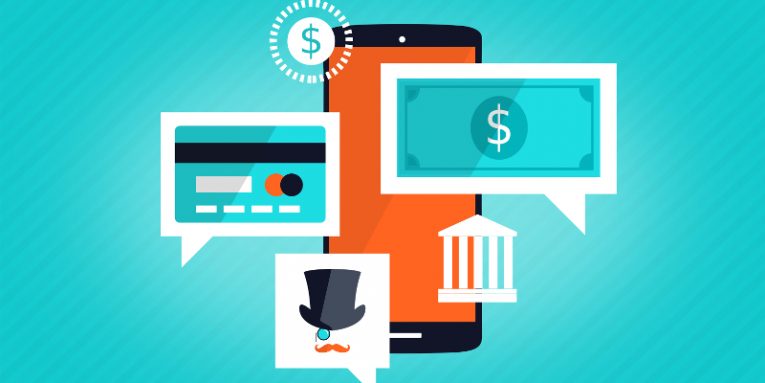Don't Be So Quick to Fall For the Degussa Bank Email Scam

Table of Contents
What is the Degussa Bank Email Scam?
A fraudulent email purporting to be from Degussa Bank has been circulating, tricking recipients into disclosing sensitive personal information. The email, designed to look legitimate, claims to be from Degussa Bank and informs recipients of a merger with another bank, Oldenburgische Landesbank (OLB). It asks recipients to complete an "identity verification" process to avoid service interruptions.
While the message may seem genuine, it's important to emphasize that this email is fake and not associated with Degussa Bank or OLB in any way. The primary goal of this email is to steal sensitive information from unsuspecting users through a phishing website.
How Phishing Scams Like This Work
Phishing scams like this one rely on creating a sense of urgency to get recipients to act quickly without thinking critically. In this case, the Degussa Bank scam email falsely warns of potential service disruptions if the recipient does not verify their identity immediately. Clicking the link in the email takes the victim to a phishing website, where they are prompted to enter personal details, banking credentials, or other sensitive information.
While the link in this particular email was inactive during the time of review, scammers often update their campaigns to include fully functional phishing sites in future waves of the attack. These websites are often designed to closely resemble legitimate bank login pages, tricking users into providing their real credentials. Once entered, these details are sent to the scammers, who can then use them to access the victim's accounts and carry out fraudulent transactions.
Check out the full message in German below:
Subject: Wichtige Mitteilung: Identitätsüberprüfung erforderlich nach der Fusion
DEGUSSA BANK
Sehr geehrter Kunde,
wir möchten Sie darüber informieren, dass unser Unternehmen die Fusion mit OLB erfolgreich abgeschlossen hat. Um sicherzustellen, dass Sie weiterhin unsere Dienstleistungen erhalten, bitten wir Sie, Ihre Identität regelmäßig zu überprüfen.
Was müssen Sie tun?
Bitte klicken Sie auf den untenstehenden Link, um die Identitätsüberprüfung abzuschließen. Dieses Verfahren ist notwendig, um Ihr Konto zu schützen.Identitätsüberprüfung
Vielen Dank für Ihre Unterstützung. Bei Fragen können Sie sich gerne an 0441 221 2210 wenden.
Wir sind hier, um Ihnen jederzeit zu helfen.
Mit freundlichen Grüßen,
Degussa-Bank© 2024 Degussa Bank. Alle Rechte vorbehalten.
Telefonischer Kontakt: 0441 / 221 2210
Montags bis freitags: 08.00 - 19.00 Uhr
The Risks of Falling for Phishing Emails
By following the instructions in the Degussa Bank email scam, victims risk exposing themselves to several significant threats. The stolen information can be used to access banking accounts, initiate unauthorized transactions, or make fraudulent online purchases. But the threat doesn't stop at a financial loss—personal details obtained through phishing can also be used for identity theft.
Scammers may use the information to impersonate victims, open new accounts, request loans or apply for credit cards in their name. Additionally, personal details, such as email account credentials, can be used to take control of the victim's email, which often contains sensitive information and may serve as a gateway to other accounts, like social media or work-related platforms.
What to Do if You Receive This Scam Email
If you receive an email like the one from the Degussa Bank scam, it's important not to click any links or provide any information. Even if the email looks official, taking a moment to scrutinize its content can help protect you from falling victim to a phishing scam. Look for red flags such as generic greetings (e.g., "Dear Customer"), spelling or grammatical errors, and suspicious email addresses.
If you're unsure whether an email is legitimate, it's always best to contact the organization directly through official channels, such as their customer service line or website, to verify whether the message is authentic.
Steps to Take if You’ve Been Targeted
If you've already clicked on a link or entered personal information on a phishing site, act quickly to mitigate the damage. First, change the passwords for any potentially compromised accounts, especially those associated with banking or financial services. Notify the official customer support for any affected accounts so they can monitor for suspicious activity or assist in securing your information.
If you've provided sensitive financial information, such as your bank account or credit card number, contact your bank immediately to report the incident. They may recommend freezing your account or monitoring for unauthorized transactions. Additionally, it may be necessary to report the scam to local authorities, especially in cases of significant financial loss or identity theft.
Why Spam Emails are Dangerous
Phishing scams like the Degussa Bank email are just one of many examples of threats spread through spam mail. Scammers often send mass emails posing as legitimate companies, banks, or government organizations in an attempt to steal personal information. In other cases, spam emails are used to distribute harmful files that can infect your device.
These emails may contain attachments or links that, when clicked, download files onto your device. The files can be documents, compressed files, or even executable programs, and some may require additional actions like enabling macros in Microsoft Office to start the infection. Once installed, these files can steal personal data, monitor your online activities, or take control of your device.
Protecting Yourself from Email Scams
There are several steps you can take to protect yourself from phishing scams and other spam-related threats. First, always approach unsolicited emails with caution, especially those asking for personal information or urging immediate action. Avoid clicking on links or downloading attachments from emails you weren't expecting, even if they seem to come from a trusted source.
Additionally, ensure that your device is equipped with up-to-date security software, which can help identify and block harmful content. Regularly check your spam or junk folders for suspicious messages and ensure your email provider's filters are working effectively. Finally, consider enabling multi-factor authentication (MFA) for your accounts, which adds another layer of security by requiring a secondary form of verification before accessing your account.
Stay Informed, Stay Safe
The Degussa Bank email scam is just one example of the many ways cybercriminals use deception to steal personal and financial information. By staying informed about how these phishing campaigns operate and taking steps to protect your information, you can reduce your risk of encountering online scams. Always verify the authenticity of unexpected emails and exercise caution before clicking any links or providing personal information online.








